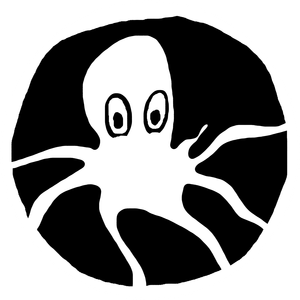An interview with Heather Ebert, a writer who dropped out of the corporate world and took the plunge into a freelance digital life.
Heather Ebert is a freelance copywriter and editor, an insightful blogger—mostly on the topics of creativity and writing, and the founder and editor of a non-profit called Redemption Stories. She’s also a very prolific tweeter. Heather is based in Nashville, and, as you’ll read, she’s planning to spend the spring in Paris. Here’s my recent (and long-overdue) interview with her (using my patented Lazy-Interviewer’s-Five-Question-Formula®).
When did you decide to make writing and editing your career?
The desire to live and work as a freelancer dates back to 2004, but I didn’t have the maturity or credentials to do it successfully at the time. Almost five years ago I joined a small tribe of women who encouraged each other toward creative awakening, and by spring of 2010 I was emboldened to plan big changes. I wanted autonomy over my best hours so that I could tend to an intensifying writing impulse.
The corporate job I had back then was so soul-crushing that I was finally willing to give up a healthy paycheck to be free. So, I juggled that full-time job, a live-in job, and freelance projects for nearly a year to get out of debt, and then I let go of the corporate position in April 2011. Not a day goes by that I’m not deeply grateful for the freedom I have to live and work the way I do now.
Why do you do what you do?
Honoring the writing impulse is faithfulness to my true self. What I’ve been doing these last three or four years is what I should have been doing all along. I spent most of my young adulthood reacting to circumstances rather than being proactive about what would be most fulfilling.
Henry David Thoreau said, “The mass of men lead lives of quiet desperation.”
That sense of desperation finally propelled me past the fear of financial insecurity that had stood in the way. I don’t have a lot of money. I don’t buy many clothes. I drive a beat-up old car. But I feel extremely wealthy because my time is my own.
How do you like to work—what’s an average workday look like for you?
As long as I don’t have anywhere to be, I like to ease into the day. I get up around 8 a.m. (maybe one day I’ll be more of an early bird). I show up to my desk with fresh coffee and first start with a devotional and Scripture reading. Then breakfast, after which I’ll work on either a personal essay or a freelance project, depending on deadlines.
A few times a week I practice yoga midday and then sit back down to work in the afternoon. If I’m having trouble concentrating I’ll work from a favorite coffeehouse. I try to stop by 7 p.m. for dinner and not do anything else work-related after that. An ideal day ends with a block of time to read before bed, a precious part of my routine.
I’m also trying to reestablish weekend boundaries because it’s easy to spread freelance tasks over six or seven days a week. But my mind needs time off, so I schedule personal tasks and leisure activities on Saturday and Sunday to balance out the weekly rhythm.
What advice do you have for people who want to do what you do?
If what you want is to work independently, then I recommend doing whatever it takes to get out of debt and simplify your living expenses. Building up a business or freelance income can take several months or even years, depending on how many clients you’ve secured by the time you set out on your own.
Independent workers are the future of the American economy. By 2020, 40 percent of American workers will be freelancers, independent or temporary, according to a study by Intuit. So, dive in. Come join us.
If you want to be a writer, you don’t necessarily have to quit your day job. Countless writers, even many established novelists, write their blogs, books and essays during their off hours. I quit my day job, but now freelance writing is my “day job.” Personal writing projects are still something I pursue in addition to professional work.
Writing also takes courage. Even if you quit your job and you have all day long to craft and create, actually sitting down to write is a challenging habit to cultivate. There’s always something that feels more urgent than writing. In his book The War of Art, Steven Pressfield calls this repellent force “Resistance.” I encounter it every time I decide to put to paper any swirling thoughts and ideas.
Writing is a bold practice, but a worthy one. Showing up consistently is the most important part of that practice.
Which project are you currently most excited about?
In my professional life, I’m working toward a gradual transition from general copywriting to editing and ghostwriting books of various lengths. My hope is to take on fewer, larger projects instead of juggling lots of smaller ones. Plus, I love the intellectual challenge that authorship poses.
In my personal life, I’m going to live in Paris for three months this spring. I visited Europe last summer, which included a week in the City of Light. The magic and beauty of the city rekindled my sense of wonder. I knew I had to return as soon as possible, so I came home last summer and started packing. All my belongings are in storage until I settle back in Nashville. My creative energy is never as refreshed and vibrant as it is when I travel.
You can learn more about Heather at her website, HeatherEbert.com.
